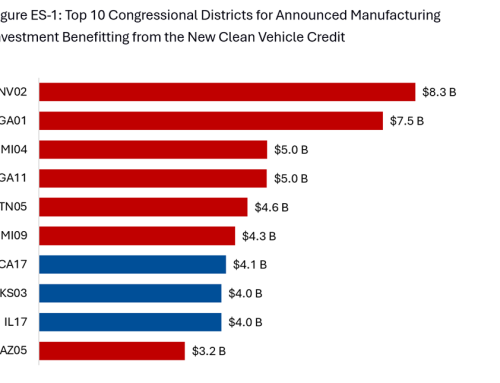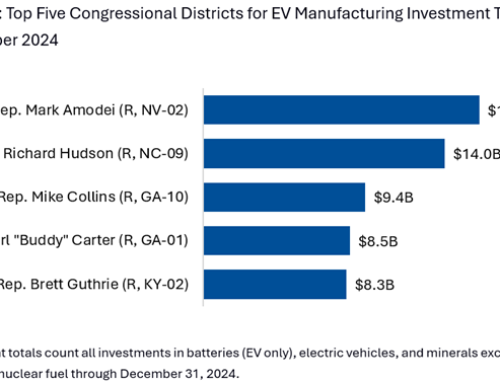
Source: Shutterstock
Last week, President Biden announced tariffs across a spread of Chinese imports, including electric vehicles (EVs), semiconductors, battery materials, and steel and aluminum in an effort to protect American leadership in booming manufacturing sectors across the globe. Experts say the tariffs have the potential to raise prices on imported EVs and battery materials in the near-term though the amount and reach of these increases are unclear.
The decision to tax Chinese imports is a culmination of what the Biden administration refers to as “unfair trade practices” in China. In a statement announcing the new tariffs, Biden claims that China provides its companies with extensive subsidies, who in turn “pour cheap products onto the market” and subsequently give them an unfair advantage in global trade. The new tariffs are intended to prevent heavily subsidized Chinese EVs being sold at below-market prices to U.S customers, which the administration fears could harm the U.S. auto industry.
Beginning this year, the tariff rate on EVs imported from China will rise to 102.5 percent, quadrupled from current levels of 27.5 percent (including the 2.5 percent tariff that is applied to all imported passenger cars).
Though the new tariffs will only apply to about $18 billion out of more than $420 billion imported from China annually, the new policy is expected to have an immediate impact on the EV market. For lithium-ion EV batteries and battery parts, the tariff rate will increase from 7.5 percent to 25 percent in 2024. Further, a 25 percent tariff rate will be applied to a number of EV battery metals effective this year, including cobalt, manganese, and zinc; the same rate will be applied to natural graphite in 2026. The tariffs threaten to raise supply chain costs for U.S. EV manufacturers who import materials from China, including market-leader Tesla who currently imports batteries from China’s Contemporary Amperex Technology Co. Ltd. (CATL), the world’s largest battery-cell maker.
The major trade association of the automotive industry, the Alliance for Automotive Innovation supports the move, with president and CEO John Bozzella saying, “[w]e can’t let China’s EV overcapacity problem turn into a U.S. auto industry problem,’’ he said.
Globally, China’s exports of EVs grew by 70 percent from 2022 to 2023 helping the country surpass Japan as the world’s largest automotive exporter. However, the European Union has been the primary destination, accounting for nearly 40 percent of China’s EV exports. The United States has yet to see an influx of Chinese-made EVs, in part due to the existing 27.5 percent tariff. Currently, only two Chinese-made EVs are available to Americans, the Polestar 2 and Volvo S90 Recharge. These two models collectively sold fewer than 8,000 units in 2023, accounting for less than one percent of the U.S. EV market. Geely, the Chinese company who owns both Polestar and Volvo Cars, had announced plans to start importing the Volvo EX30, a new compact SUV that was slated to start at $35,000. The future of the EX30, which is already Volvo’s top-selling vehicle in Europe, remains to be seen.
The tariffs have already received political scrutiny from former President Trump’s campaign, who vows to go “much further” than Biden. At a recent campaign event in New Jersey, Trump promised to impose a 200 percent tariff on every auto produced in Mexican factories.
Atlas founder Nick Nigro shared insights on the issue in conversation with E&E News: “[r]egardless of who’s in the White House right now, there’s a lot of political will to put the U.S. on a better footing when it comes to manufacturing EVs.” As President Biden and former President Trump continue on the campaign trail, the tariff issue is likely to heat up.

